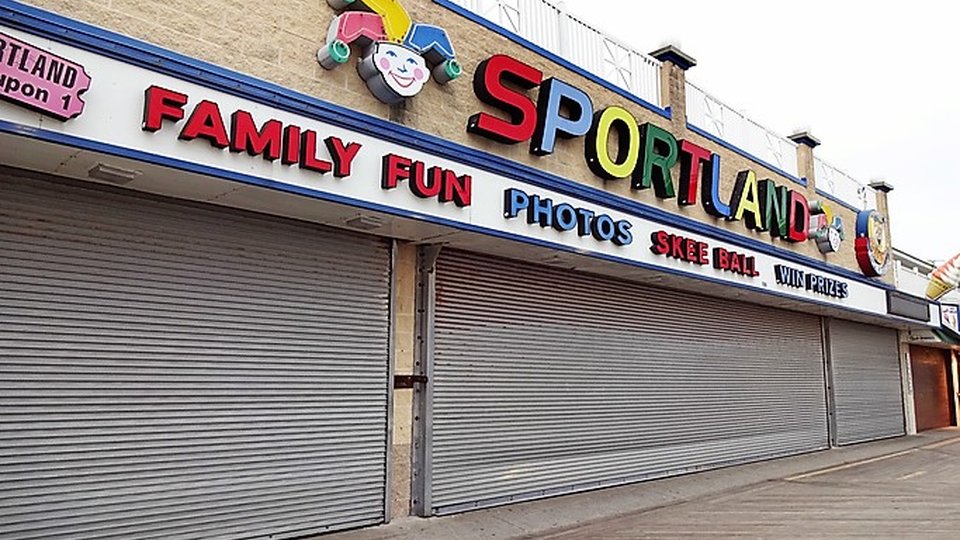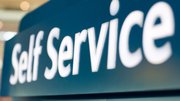Music & Games
Are you ready to reopen your amusement center?
A webinar sponsored by the American Amusement Machine Association gave an overview of financial forecasting for entertainment centers that have been shuttered by the COVID-19 outbreak.

May 4, 2020 by Elliot Maras — Editor, Kiosk Marketplace & Vending Times
What can entertainment centers shuttered by the coronavirus pandemic to do reopen?
The challenge includes several considerations, a key one being a company's ability to forecast its financial requirements. A webinar last week sponsored by the American Amusement Machine Association gave an overview of financial forecasting.
"How do we reengage and reopen our facilities?" panelist Jerry Merola, partner, Amusement Entertainment Management, an East Brunswick, New Jersey based entertainment center consultancy, asked in introducing the segment on financial forecasting. Merola spoke following a presentation on the SBA loan program during the first half of the webinar.
"How do we reconnect with our guests and how to we maintain a safety standard for our employees and our guests alike?" Merola asked.
Progress cited
Many amusement centers are taking what Merola called very proactive steps to reengage with guests. He said continued contact is the most critical decision a business can make during the pandemic.
"The more comfortable they (consumers) feel with the business itself, and what the business and the staff is doing to keep them safe, ultimately the quicker they're going to want to return," he said.
"We're essentially starting the business from ground zero again," he said.
Scale your approach
Expect the recovery to be slow to moderate, Merola said. One of the best strategies he cited is to "scale" the reopening — be prepared to operate the business at various levels.
In the early stage, the business might operate at 25% occupancy. "The operating costs are going to have to reflect that condition," he said. "To operate various attractions, we may need to use a lower level of staff and rotate the use of the components within the facility."
Many companies are taking reservations from customers to schedule the use of the facility, he said. This allows them to control the volume of consumers present at any given time.
"By reaching out to our routine members and individuals that frequently visit our facilities, we're encouraging a lot of them to book time with us," he said. "A guest might book a 12 p.m. to 2 p.m. time slot to visit the facility. This permits us to control traffic and allows for safe use by participants."
"Our guests need to feel that we are treating them as we would our own family," he said.
Set goals
In the meantime, he suggested setting weekly goals, then extend it to two weeks and monthly.
Setting goals will allow a business to progress, he said.
"Ultimately, we hold the responsibility of delivering the leisure opportunity to the guest," he said.
In addition to communicating with customers, it's also important to do so with partners, Merola said. These include bankers, landlords, investors and suppliers. He said he has spoken to hundreds of landlords nationwide in the past month to encourage them they need to act as partners with their business tenants.
"Everyone's in this together, and because of that, we have to find a way to improve efficiency in the early period here to allow that business to operate at a lower volume level," he said.
Communicate with staff
One of the most important goals is to connect with staff on how the business is keeping them safe, Merola said. It's important to outline what the facility is doing to maintain safety.
"We really need to be transparent about the situation, specifically with regard to your employees," webinar moderator David Cohen, manager of DSC Advisory Llc, Sharon, Massachusetts, said. "They need to hear from you, as you are the leader of this business. You don't want them hearing information from the rumor mill."
It's also important to ask employees for honest feedback. "You may not want to hear it; it opens you up to vulnerability, but it's okay," he said.
At the same time, it's important to celebrate wins since people need to feel good about their work. "You need to boost their morale during tough times," Cohen said.
Make customers feel welcome
Merola encouraged listeners to consider the elements inside the facility that will allow the guest to feel comfortable to return. Many entertainment centers have already purchased air purification systems, dispensing stations offering gloves and masks, and patron temperature checks. Many are also having the staff clean while guests are in the building.
Social distancing is another issue that businesses have to address when they reopen.
It is also important to show strength rather than panic.
"You're not going to have all the answers, and that's okay, but what you do know you should be able to communicate," Cohen said. It's okay, for instance, to change when you choose to reopen.
The question of where to find protective equipment was raised. Pete Gustafson, AAMA executive vice president, said Suzo Happ has announced it has started providing it.
The AAMA will be presenting another "COVID-19 Road to Recovery" webinar on Tuesday at 10:30 a.m. CST.
About Elliot Maras
Elliot Maras is the editor of Kiosk Marketplace and Vending Times. He brings three decades covering unattended retail and commercial foodservice.
 ChatGPT
ChatGPT Grok
Grok Perplexity
Perplexity Claude
Claude






